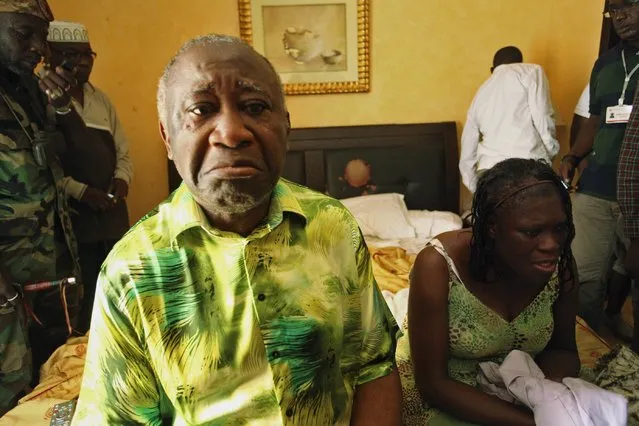
Ivory Coast's Laurent Gbagbo (L) and his wife Simone sit in a room at Hotel Golf in Abidjan, after they were arrested, April 11, 2011. Former Ivory Coast President Laurent Gbagbo goes on trial at the International Criminal Court on Thursday, the most senior politician to do so since the global war crimes tribunal was set up 13 years ago. Accused of unleashing a civil war that killed 3,000 people after he refused to accept losing a re-election bid in 2010, Gbagbo remains an influential figure at home and his trial could rekindle tensions in the world’s largest cocoa grower. Gbagbo, 70, and his co-accused, youth leader Charles Ble Goude, 44, face four counts, including a campaign of rape and murder aimed at hanging onto power. Both men deny the charges, which carry maximum sentences of life imprisonment. Gbagbo’s supporters say he is a victim of collusion between France and current Ivory Coast President Alassane Ouattara, who won the election and took office after a military intervention by the former colonial power ended the four-month civil war. (Photo by Reuters/Stringer)
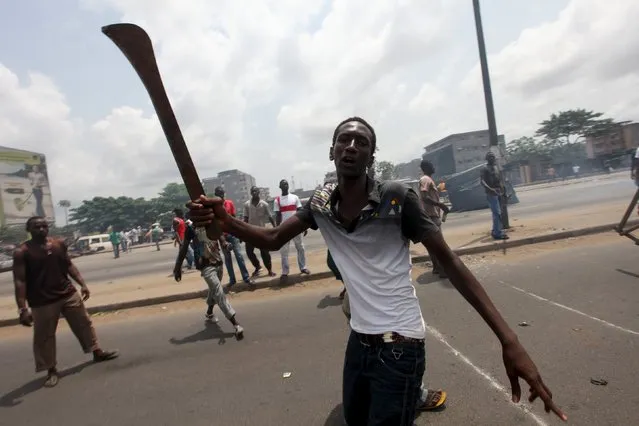
Anti-Gbagbo protester holds a machete near a roadblock and burning tyres in the Abobo area of Abidjan March 3, 2011. The trial of Laurent Gbagbo on charges of crimes against humanity during post-election violence, in which around 3,000 people were killed, will begin on January 28, 2016 at the International Criminal Court. (Photo by Luc Gnago/Reuters)
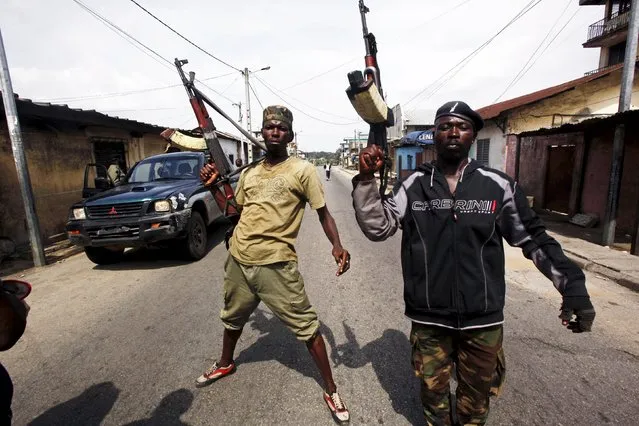
Fighters loyal to Ivory Coast presidential claimant Alassane Ouattara celebrate in the main city Abidjan, April 11, 2011. (Photo by Emmanuel Braun/Reuters)
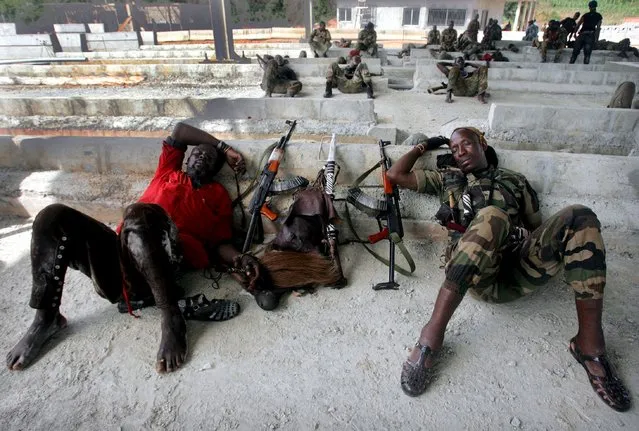
Forces loyal to presidential claimant Alassane Ouattara rest about 20 km (12 miles) north of Abidjan April 1, 2011. (Photo by Emmanuel Braun/Reuters)
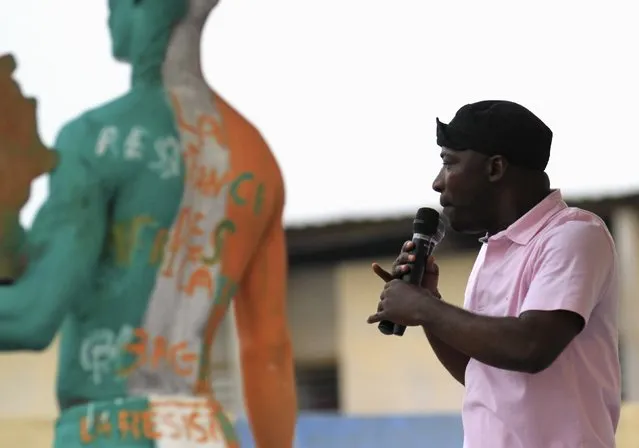
Charles Ble Goude, minister of youth and employment in Ivory Coast's incumbent leader Laurent Gbagbo's government, gestures during a rally with youths in Yopougon, Abidjan on December 29, 2010. (Photo by Thierry Gouegnon/Reuters)
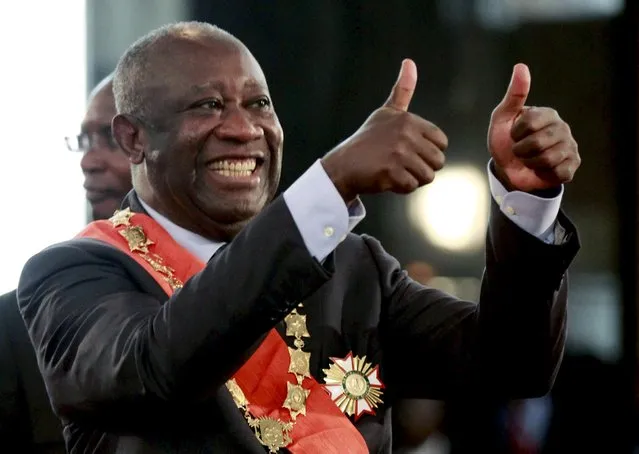
Ivory Coast's President Laurent Gbagbo flashes two thumbs-up during his inauguration at the presidential palace in Abidjan December 4, 2010. (Photo by Thierry Gouegnon/Reuters)
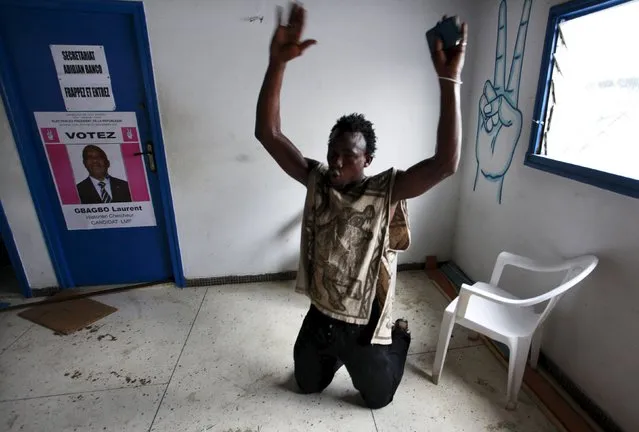
A man on his knees raises his hands inside an Ivorian Popular Front (FPI) office after being detained for suspected involvement in reprisal attacks on a local FPI office in Abidjan December 2, 2010. (Photo by Emmanuel Braun/Reuters)
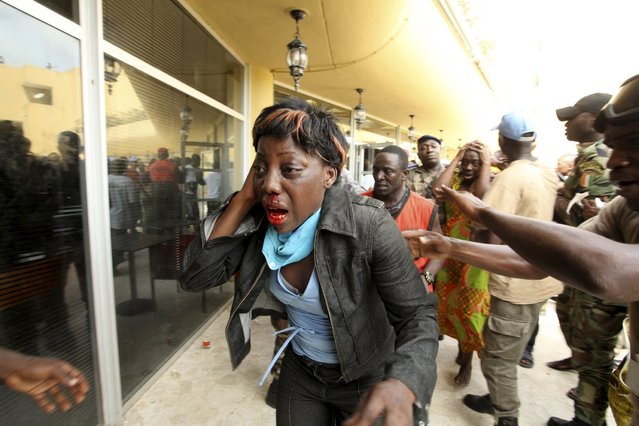
An injured supporter of Ivory Coast's Laurent Gbagbo reacts outside the premises of Hotel Golf, where Gbagbo is currently being held after his arrest, in Abidjan April 11, 2011. (Photo by Reuters/Stringer)
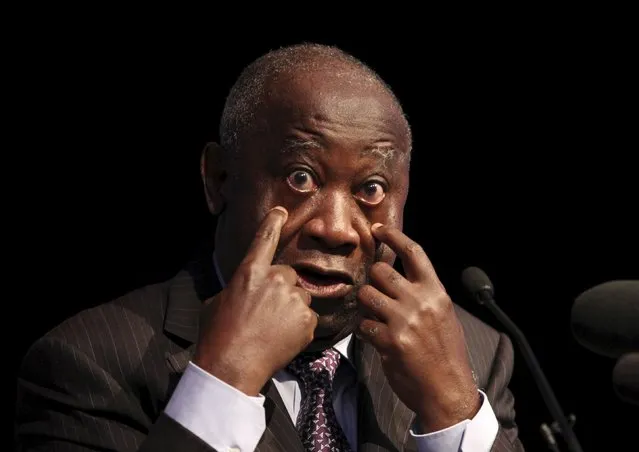
Ivory Coast's President Laurent Gbagbo gestures during the ceremony of his official declaration as the candidate of his Ivorian Popular Front (FPI) party for the upcoming presidential election, in Abidjan October 9, 2010. (Photo by Luc Gnago/Reuters)
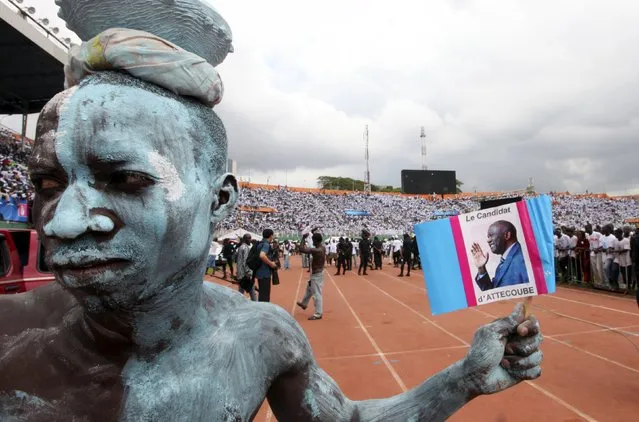
A supporter of Ivory Coast's President Laurent Gbagbo, also a presidential candidate for FPI “Ivorian Popular Front”, holds a poster of Gbagbo during his last campaign rally at the main stadium of Abidjan October 29, 2010. (Photo by Luc Gnago/Reuters)
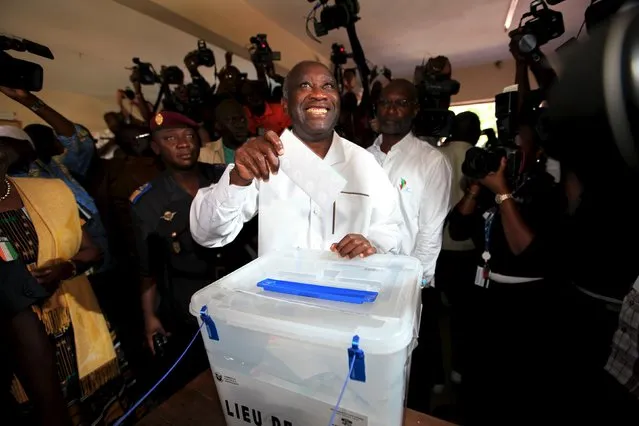
President Laurent Gbagbo, presidential candidate for the FPI “Ivorian Popular Front”, votes on October 31, 2010 at the EPP les Jardin de la Riviera in Abidjan. (Photo by Luc Gnago/Reuters)
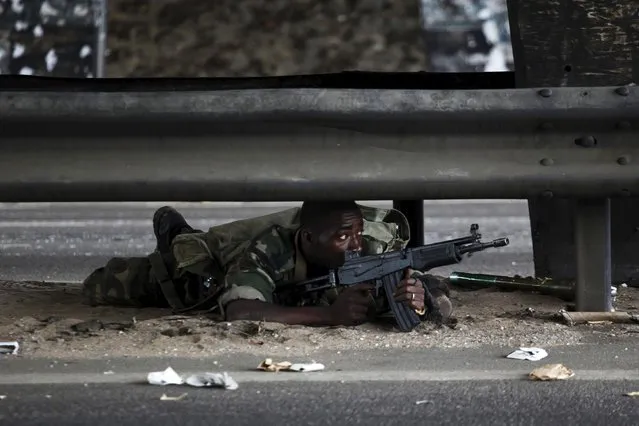
A soldier loyal to Ivory Coast presidential claimant Alassane Ouattara lies on a road as fighting flares across the country's main city Abidjan April 4, 2011. (Photo by Emmanuel Braun/Reuters)
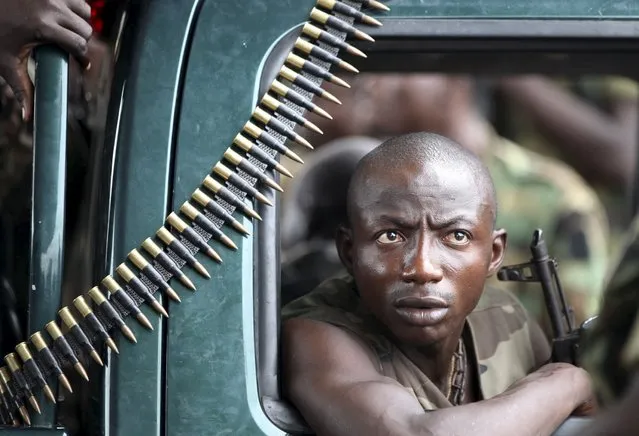
A pro-Ouattara soldier of FRCI (Republican forces of Ivory coast) sits with bullet rounds in Yopougon April 29, 2011. (Photo by Luc Gnago/Reuters)
27 Jan 2016 13:45:00,
post received
0 comments
